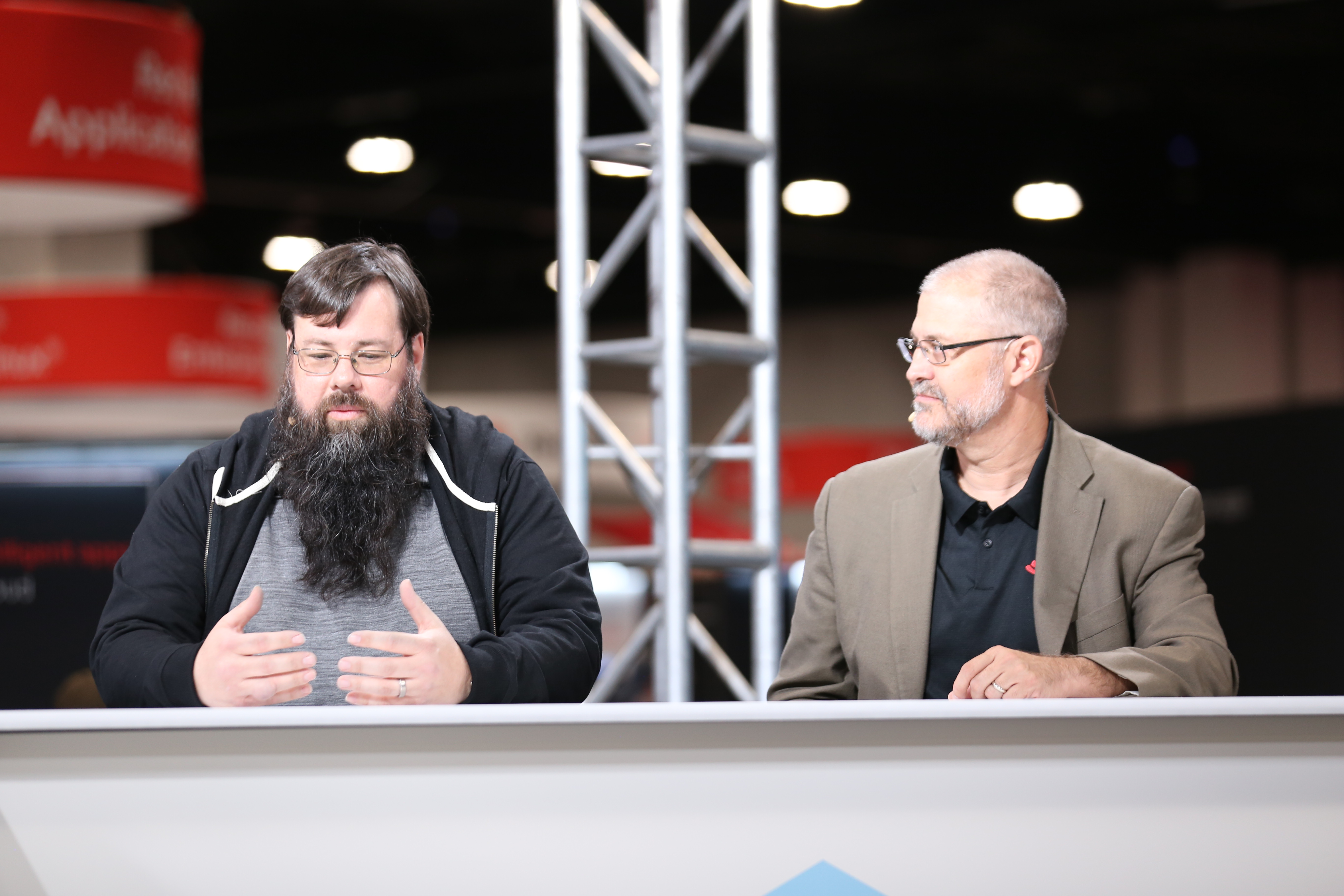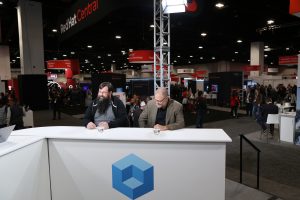 AI
AI
 AI
AI
 AI
AI
In coping with the barrage of tools companies rely on, simplification has become the contemporary operating ideology. The modern-day focus is making complex technologies more accessible and manageable for enterprises. In that vein, Dell Technologies Inc. has worked with Red Hat Inc. to simplify the on-premises operation of Red Hat OpenShift instances with Kubernetes.
“It’s an appliance model that was collaboratively built with Dell and Red Hat to simplify the process of running OpenShift on-premises,” said Michael Wells (pictured, left), engineering technologist, Microsoft Azure MVP, at Dell Technologies. “It gives you the ability to run bare metal so that you can take advantage of all of the features and capabilities within OpenShift, but it allows you to stand it up much faster and it simplifies the life cycle management of OpenShift itself.”
Wells and Ian Pilcher (right), principal product manager at Red Hat, spoke with theCUBE Research’s Rebecca Knight and Rob Strechay at Red Hat Summit, during an exclusive broadcast on theCUBE, SiliconANGLE Media’s livestreaming studio. They discussed how Apex Cloud is empowering organizations to harness the power of artificial intelligence more efficiently by offering a streamlined solution for Red Hat OpenShift and integrating AI-specific capabilities. (* Disclosure below.)

Discussing the OpenShift/Apex Cloud integration with Dell’s Michael Wells and Red Hat’s Ian Pilcher.
While Apex Cloud is a relatively recent release, it’s seen a host of new features such as hosted control planes, object storage capability with Dell Object Scale and additional GPU types to support AI workloads. These enhancements aim to make Apex Cloud even more versatile, catering to a wide range of use cases, from multi-cluster deployments to AI-driven applications.
“We’re also adding in object storage capability with Dell Object Scale,” Pilcher said. “That will of course support applications that have a requirement for object storage and then additional GPU types to support AI workloads to bring that back around.”
The collaboration between Dell and Red Hat extends beyond infrastructure to AI-specific capabilities. OpenShift AI, built on top of Apex Cloud, simplifies the deployment and management of AI workloads. This integration enables an organization to leverage off-the-shelf models and apply its own business data without extensive retraining.
“OpenShift fundamentally is a platform for managing workloads, and OpenShift AI brings the AI-specific capabilities that we need to it kind of in the same way that OpenShift virtualization brings the VM-specific capabilities that we need to the platform,” Pilcher said.
Here’s the complete video interview, part of SiliconANGLE’s and theCUBE Research’s coverage of Red Hat Summit:
(* Disclosure: Dell Technologies Inc. sponsored this segment of theCUBE. Neither Dell nor other sponsors have editorial control over content on theCUBE or SiliconANGLE.)
Support our mission to keep content open and free by engaging with theCUBE community. Join theCUBE’s Alumni Trust Network, where technology leaders connect, share intelligence and create opportunities.
Founded by tech visionaries John Furrier and Dave Vellante, SiliconANGLE Media has built a dynamic ecosystem of industry-leading digital media brands that reach 15+ million elite tech professionals. Our new proprietary theCUBE AI Video Cloud is breaking ground in audience interaction, leveraging theCUBEai.com neural network to help technology companies make data-driven decisions and stay at the forefront of industry conversations.